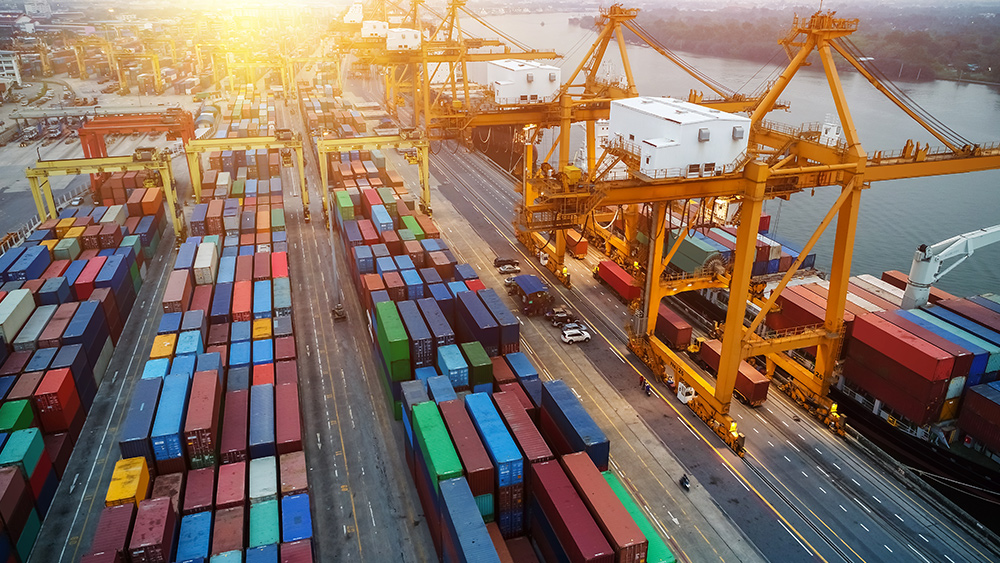OPEC+ to implement voluntary oil production cuts in 2024, further strangling the global energy supply
12/08/2023 / By Laura Harris

After days of intense negotiations and delays caused by disputes over production baselines, the Organization of the Petroleum Exporting Countries (OPEC) and its allies, collectively known as OPEC+, have reached an agreement to implement voluntary oil production cuts.
The meeting, originally scheduled to take place in person in Vienna, Austria from Nov. 25 to 26, was delayed due to disputes over the baseline production of the group’s largest West African members, namely Nigeria and Angola.
OPEC has set the quota for Nigeria to be cut to 1.5 million barrels per day, far from their proposal of 1.78 million barrels per day. In Angola in Southern Africa, the continent’s second-largest producer of crude oil, OPEC has given it a 2024 output target of 1.11 million barrels per day. In the Congo, the organization provided a target of 277,000 barrels per day.
These numbers are considerably lower than what was agreed upon in June when OPEC+ members agreed to a complex deal that adjusted production targets for several countries.
Furthermore, both Angola and Nigeria are planning to go against OPEC’s wishes and produce more oil than their quotas. Angola plans to pump 1.18 million barrels per day beginning in January, slightly higher than its quota. Meanwhile, Nigeria, which has seen a decline in oil output for years but has experienced a recent uptick in production due to increased offshore activity, is facing criticism for its ambitious target of producing two million barrels of crude and condensate per day in 2024.
Saudi Arabia, Iraq, the United Arab Emirates, Kuwait, Kazakhstan, Algeria and Oman are also expected to cut production by a total of 2.2 million barrels per day beginning in January and until the end of March 2024. Russia is also cutting its oil production by about 300,000 barrels per day and petroleum by 200,000 barrels per day.
Saudi Arabia, the world’s leading crude oil exporter, will extend its voluntary production cut of one million barrels per day until the end of March 2024. (Related: Saudi Arabia to extend its voluntary oil production cut until September.)
These latest production cuts would be on top of those from June, which could lead to higher gasoline prices in 2024. This, in turn, could impact President Joe Biden’s chances of reelection.
Higher gasoline prices threaten Biden’s chances of reelection
White House officials, including National Security Adviser Jake Sullivan, National Economic Council Director Lael Brainard, White House Chief of Staff Jeff Zients and Senior Advisor Amos Hochstein, conducted several meetings in September to explore different domestic and international policy options in fear of instability and the potential spike in gasoline prices in 2024.
Since then, the administration has been closely monitoring the situation to see whether prices naturally drop as the peak season for travel and air conditioning usage downsizes between Memorial Day and Labor Day. Despite a steady decline since the peak in June 2022, gasoline prices witnessed a significant 10.6 percent surge in August, contributing to the recent inflation spike, which has been a concern for consumers and voters alike.
According to several sources, gasoline prices increase due to a combination of factors, including the joint decision of OPEC+ nations Russia and Saudi Arabia to cut exports, strong economic demand and geopolitical tensions. Additionally, recent disruptions, such as floods in Libya and reduced production in Gulf Coast refineries due to extreme summer temperatures, have compounded the issue.
Learn more about the state of crude oil production and exports worldwide at NewEnergyReport.com.
Watch this clip from the “Worldview Report” as host Brannon Howse talks with author and financial expert Rebecca Walser about OPEC’s plan to join BRICS and help kill the U.S. dollar.
This video is from the Worldview Report channel on Brighteon.com.
More related stories:
OPEC+ oil cuts a slap in the face to Joe Biden – expect gas prices to skyrocket once again.
Saudi Arabia joins others in OPEC to cut oil production in latest slap in the face to Joe Biden.
IEA report: Nearly 80% of Russian crude oil has been rerouted from EU to China and India.
Sources include:
Submit a correction >>
Tagged Under:
big government, bubble, collapse, crude oil, economic collapse, economic riot, economy, energy supply, finance riot, fuel supply, inflation, Joe Biden, market crash, oil prices, oil production, OPEC, Organization of Oil Exporting Countries, power, rationing, risk, scarcity, supply chain
This article may contain statements that reflect the opinion of the author
RECENT NEWS & ARTICLES
SupplyChainWarning.com is a fact-based public education website published by SupplyChainWarning.com Features, LLC.
All content copyright © 2021 by SupplyChainWarning.com Features, LLC.
Contact Us with Tips or Corrections
All trademarks, registered trademarks and servicemarks mentioned on this site are the property of their respective owners.




















